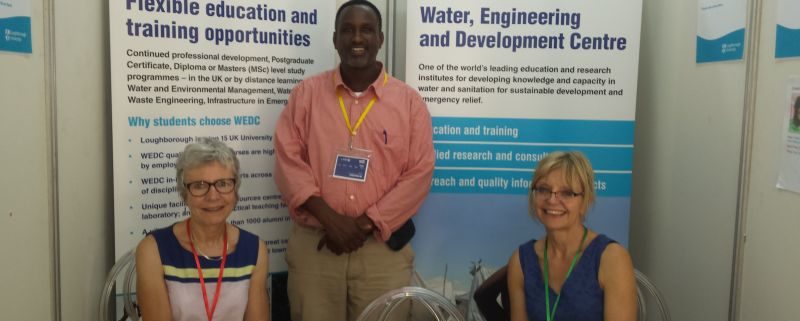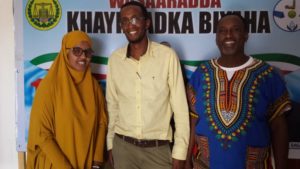Capacity building in Somaliland’s water sector
Water is scarce resource in Somaliland and it is a drought prone country. The rainy seasons are “Gu” (April-June) and “Deyr” (September-October). The average precipitation is nearly 300mm; but due to El Nino and climate change there have been three years of below average rainfall. There have already been confirmed reports of conflicts over grazing land and water scarcity among pastoral communities. The Ministry of Water Resources (MoWR) and its partner Somalia Water & Land Information Management (SWALIM) predict that the country will experience near or below normal Deyr rainfall. The prediction will push many pastoral and agro-pastoral communities into the category of needing urgent humanitarian assistance, especially Water, Hygiene & Sanitation (WASH).
Somaliland has missed the Millennium Development Goals (MDGs) targets for water and sanitation, according to the latest KAP survey commissioned by UNICEF in late 2015. The UNICEF and WHO JMP report of 2012 indicated that only 29 percent of Somalia’s population has access to improved source of water and 23 percent has access to sanitation facilities.
Somaliland’s Actions
On June 14, 2017, MoWR facilitated a regional utilities workshop and identified the need to have more robust management in regional utilities’ management. Three of four utilities reported that Non-Revenue Water is about 40-50 percent of production.
For the first time, the Somaliland Ministry of Water Resources (MoWR) nominated two employees (shown in the photo) to acquire the modern management techniques for utilities at a workshop on June 18-30, 2017 organized by the University of Loughborough, UK for East African water utilities. The Water, Engineering & Development Center (WEDC) courses were hosted by the National Water & Sewerage Corporation (NWSC) in Kampala, Uganda. The two officials’ attendance was sponsored by the African Development Bank (AfDB) grant “Water Infrastructure Development for Resilience Program in Somaliland (WIDR),” the first AfDB financial grant to the water sector in Somaliland.
WEDC’s distance learning courses, such as the one attended by MoWR employees, add to the solution for water utilities’ management challenges. Hopefully, the Somaliland government together with the private sector will meet and exceed the Sustainable Development Goals (SDGs) so that the population of Somaliland can enjoy drinking clean water. Through the WIDR program, the African Water Facility and the Somaliland government plan to manage the water stress situation by setting up a long-term water resources development plan. NIRAS and We Consult were commissioned to undertake the technical studies to determine bankable projects for the long-term water sector development. NIRAS has completed phase one of the assignment and the second phase is due in October 2017.
Care International is the implementing agency of the program and MoWR is the custodian and beneficiary of the WIDR program.





Leave a Reply
Want to join the discussion?Feel free to contribute!